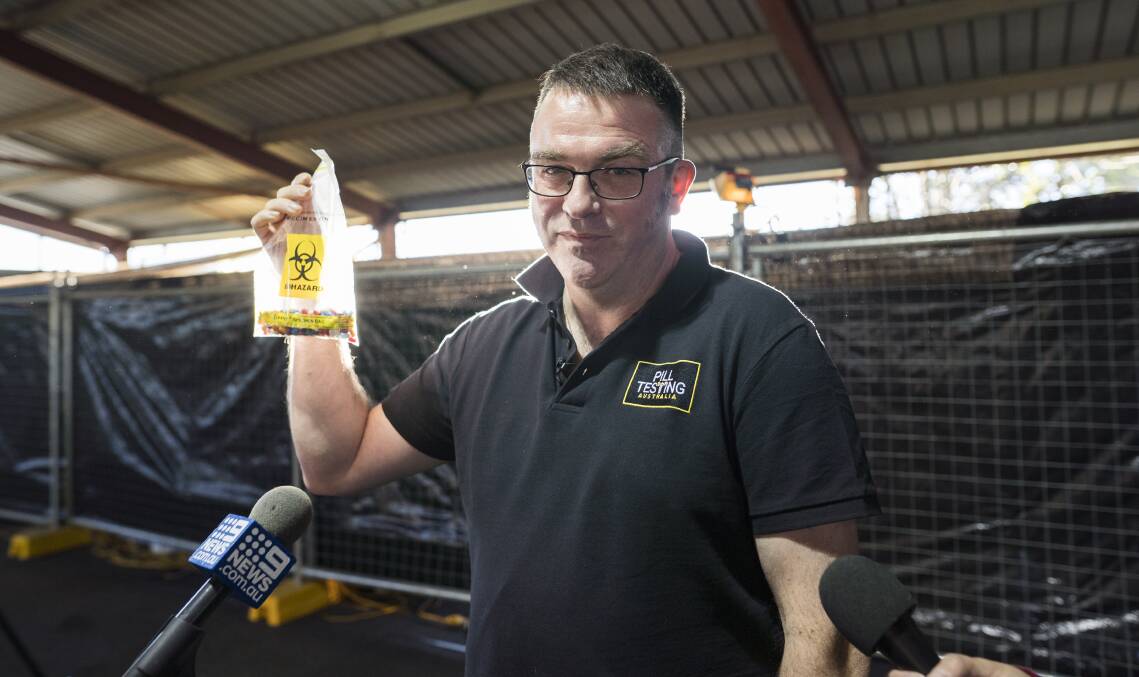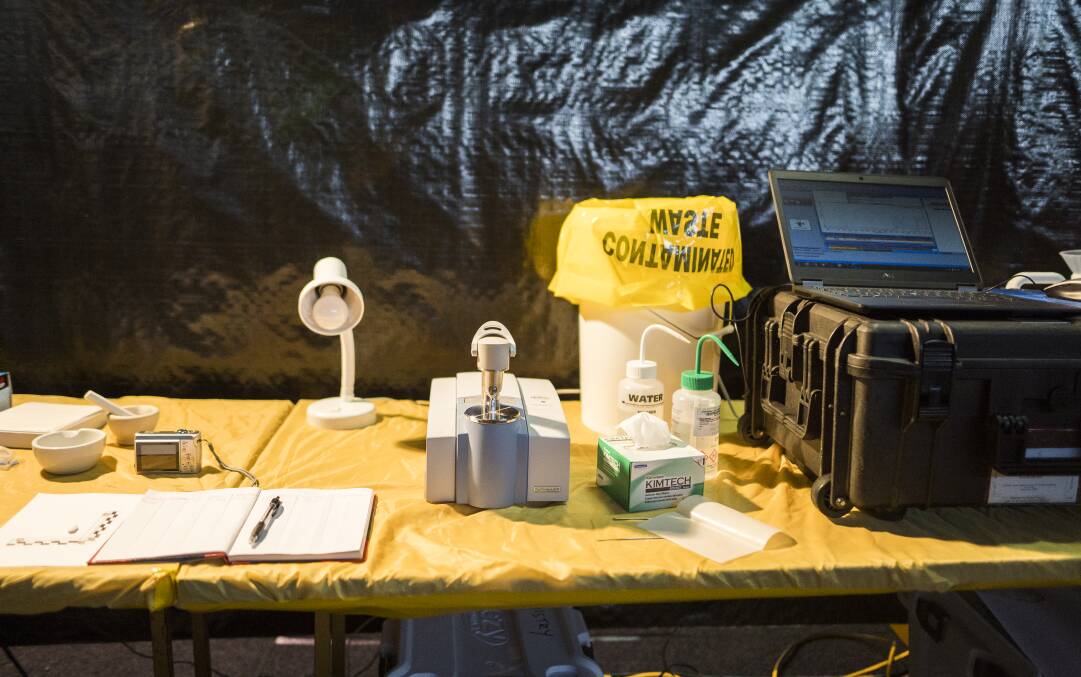
A static pill testing venue in the city is expected to open in the coming weeks, despite the organisation being forced to pull their services from Groovin' The Moo music festival days before the event.
Pill Testing Australia cancelled testing at the Canberra festival on Wednesday night after insurance companies categorised the event as high risk and required the organisation to enact "substantial changes".
However, a fixed-site pill testing facility trial, conducted in conjunction with ANU and funded by ACT Health, is set to open it's doors in the CBD.
Harm Reduction Australia president Gino Vombaca said while Pill Testing Australia had a short-term insurance policy in place for the trial, he was concerned about the long-term future of the site.
"We're concerned going forward that if the trial is successful and we try and batten down the ongoing [insurance] service there'll be an issue," he said.
"Insurance companies across the board are reluctant to have anything to do with services that engage with people who use drugs.
"[Insurance companies] actually get to determine on what health services Canberra will have."
The exact location of the facility is still a secret but will operate two nights a week as part of the six-month trial.
While Mr Vombaca was pleased the venue would open, he said the ACT needed both services to curb opportunistic drug use at festivals.
He stressed that pill testing had the support of festival organisers, the ACT government and ACT Policing.
"People [at festivals] are generally naive about what they're buying, what they're using, what impact it will have on their bodies, and what to do if there's any problems," he said.

Upon last minute cancellation of the Groovin' The Moo pill testing, 40 volunteers and health professionals from around Australia were forced to change their plans and cancel flights ahead of Sunday.
The service was previously available at the festival in 2018 and 2019.
Head of Pill Testing Australia's medical team, Dr David Caldicott likened a lack of pill testing at festivals to not handing out condoms at an orgy.
"There's about as much chance of us persuading young people in their entirety across Australia to not use drugs, as there is for us to be able to persuade them not to have sex with each other," he said.
"The vast majority of people who've used drugs in Australia don't for a second swallow the mainline more prohibitionist approach [to drug education].
"In a large room of people who have already decided to use drugs, the best we can do is alter the way that they use drugs in such a fashion that they survive the event that they're attending, which gives us another chance to talk to them about their decisions."
However, the doctor said the organisation was "delighted" to provide a fixed testing site in Canberra.
"We're delighted that we will soon be able to offer [pill testing] all year round. And those who would try to confound us will find that increasingly difficult in a jurisdiction like the ACT that's really embracing evidence-based drug law reform and leading the charge in Australia for that," Dr Caldicott said.
He stressed that as a medical practitioner it was not his responsibility to pass judgement, but rather to save lives and help people.
"I would pass no greater moral judgment on somebody who came to me injured from not having worn a helmet on an E-scooter, than I would on somebody who comes to me unwell because they've swallowed too many drugs," Dr Caldicott said.
The ACT government agreed to explore the idea of a fixed-site pill testing trial in the Legislative Assembly in 2020, following a push from the ACT Greens. The site was expected to open over summer in 2020 but proved too difficult to deliver the pilot in such a short period.







